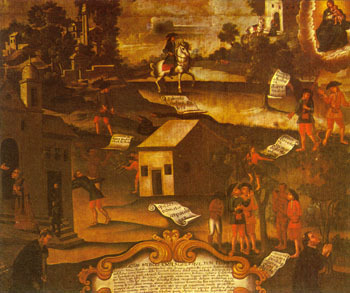Created by poet and teacher Eduardo Ferreira de Oliveira, the Anthem to Negritude was made official throughout the territory thanks to the bill sent by federal deputy Vicentinho, a member of the São Workers' Party. Paul. According to the political representative, the consecration of this hymn aims to reinforce the figure of black people as a contributor to the formation of Brazilian society.
The process of composing the anthem had a long trajectory, which began in the 1940s. Initially, Professor Eduardo registered the musical piece as “Hino 13 de Maio”, making a clear reference to the same date when Princess Isabel promoted the end of slavery in Brazil. However, over the course of several historiographical debates, the song changed its name due to the various dilemmas still faced by blacks after abolition.
According to the bill that formalized the recognition of the Anthem to Negritude, the song will be sung in any type of event in which the black race is its main focus. In addition to the specifications of its use, several entities and departments involved with the black population have been developing projects that facilitate access and dissemination of the new anthem in libraries, schools, culture houses and other establishments of teaching.
In addition to its symbolic and political value, the Anthem to Negritude consolidates yet another action to fight the issue of racial prejudice. Under the pedagogical aspect, the dissemination of the anthem promotes a poetic rescue of all the contribution that blacks had in the development of the Brazilian nation. Below, follow the lyrics of the song:
I
Under the indigo sky of the Americas
Today stands a superb profile
It's an image of light
which actually translates
The history of black people in Brazil
This people in intrepid steps
Among brave peoples
With the fury of the lions
breaking shackles
to the tyrants he countered
Raise the torch to the height of glory
Who, hero, in combat, became
Because the pages of history
They are rewards for haughty blacks
(bis)
II
Raised on top of the centuries
A thousand manly battles sustained
this immortal people
unrivaled
On the path that love has destined for you
Beautiful and strong in ebony complexion
Just fighting feel happy
school brazilian
Fight from sun to solemnities For the good of our country
Raise the torch to the height of glory
Who, hero, in combat, became
Because the pages of history
They are rewards for haughty blacks
(bis)
III
From Palmares, the historical achievements
They are examples of the eternal lesson
That in Tupi soil
will bequeath us zombie
dreaming of liberation
Also being the son of Mother-Africa
Arunda of the gods of peace
In Brazil, this Axé
that keeps us standing
It comes from the strength of the Orixás
Raise the torch to the height of glory
Who, hero, in combat, became
Because the pages of history
They are rewards for haughty blacks
(bis)
IV
May we know how to keep these symbols
From a past of heroic work
all in one voice
our grandparents cry
to live is to fight fearlessly
We march forward undaunted
That victory will smile on us
citizens, citizens
We're all brothers
conquering the best to come
Raise the torch to the height of glory
Who, hero, in combat, became
Because the pages of history
They are rewards for haughty blacks.
By Rainer Sousa/
Graduated in History
Do not stop now... There's more after the advertising ;)
Would you like to reference this text in a school or academic work? Look:
SOUSA, Rainer Gonçalves. "Hymn to Negritude (Song to Brazilian Africanity)"; Brazil School. Available in: https://brasilescola.uol.com.br/historiab/hino-negritude-cantico-africanidade-brasileira.htm. Accessed on June 28, 2021.

